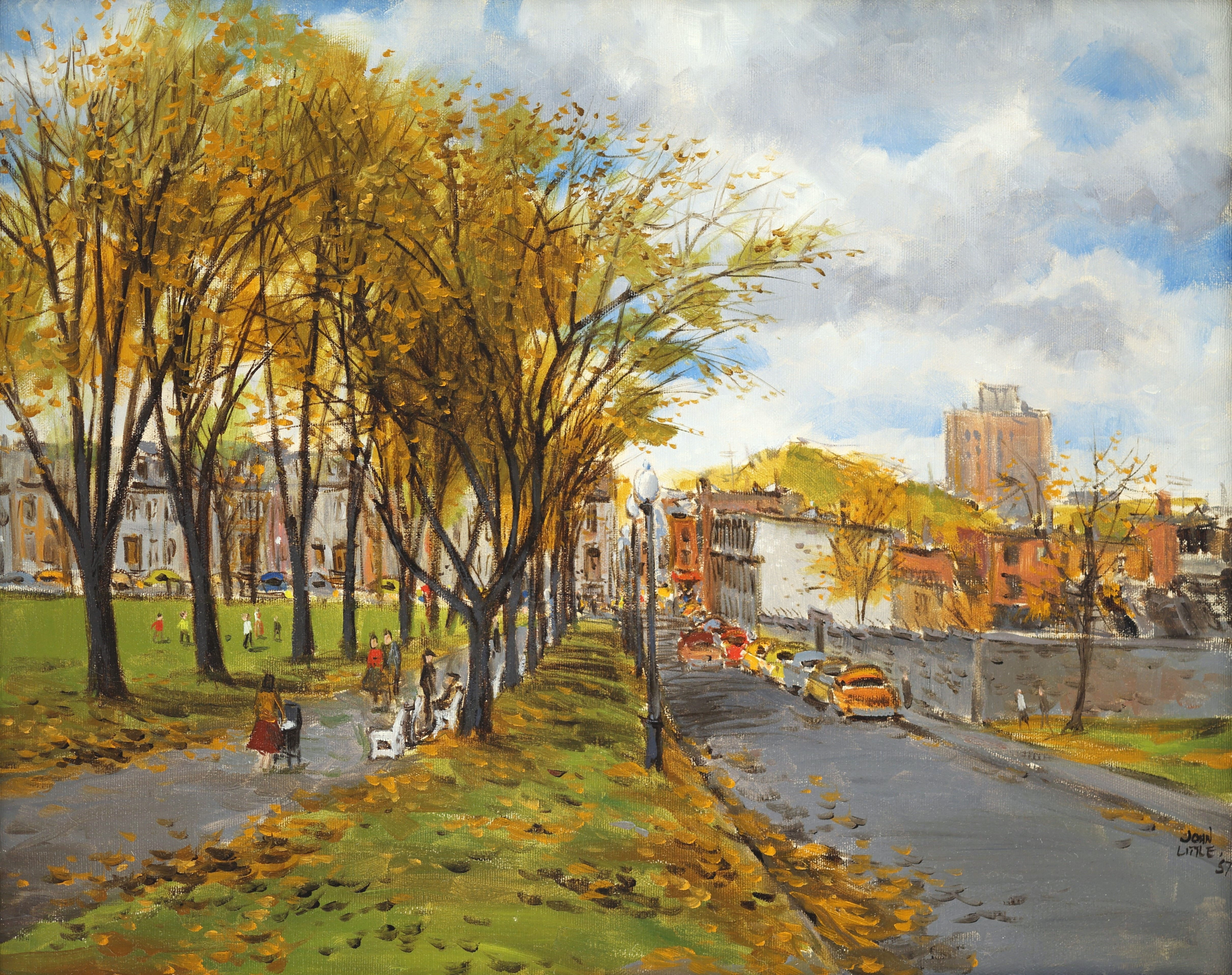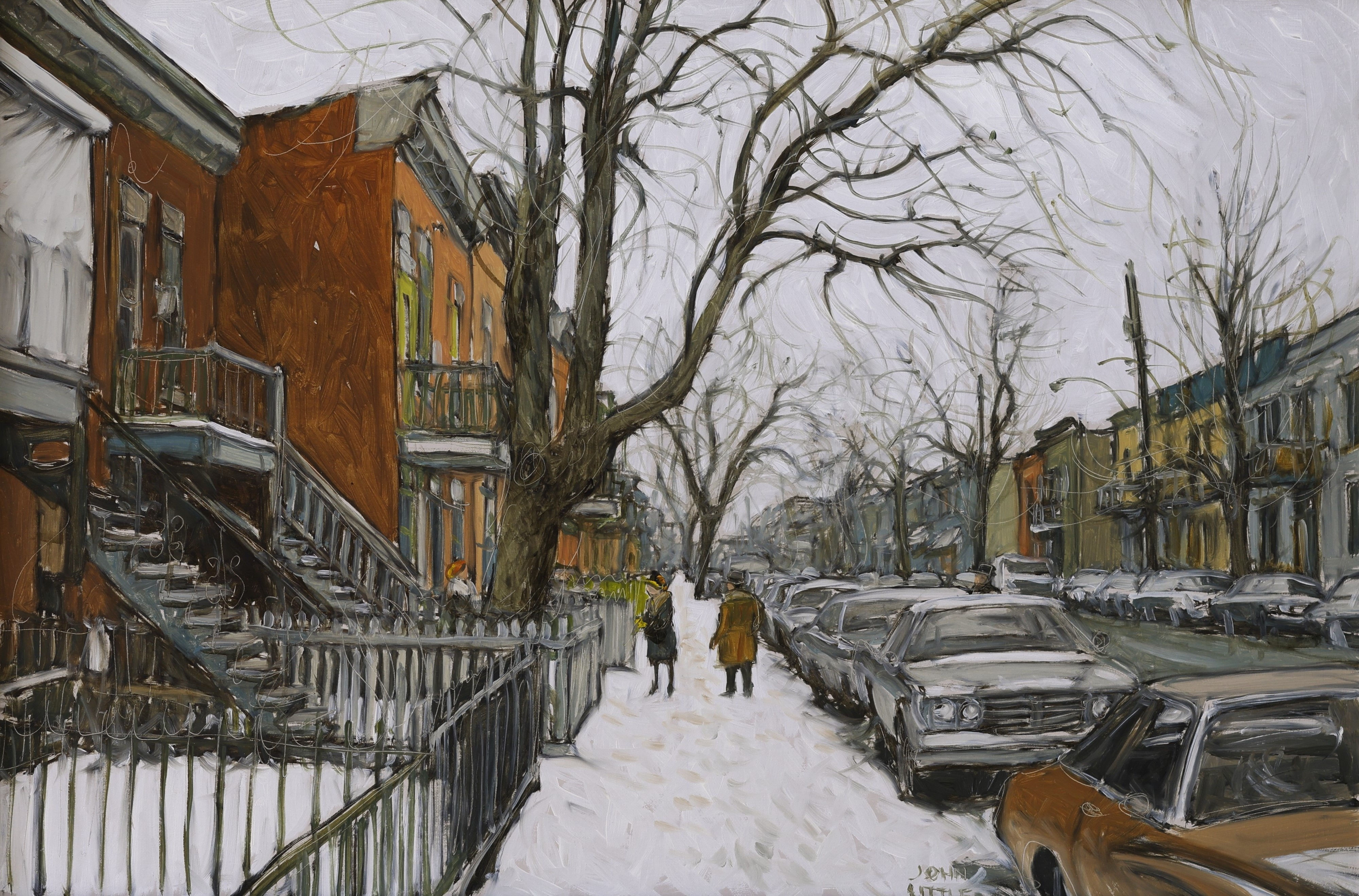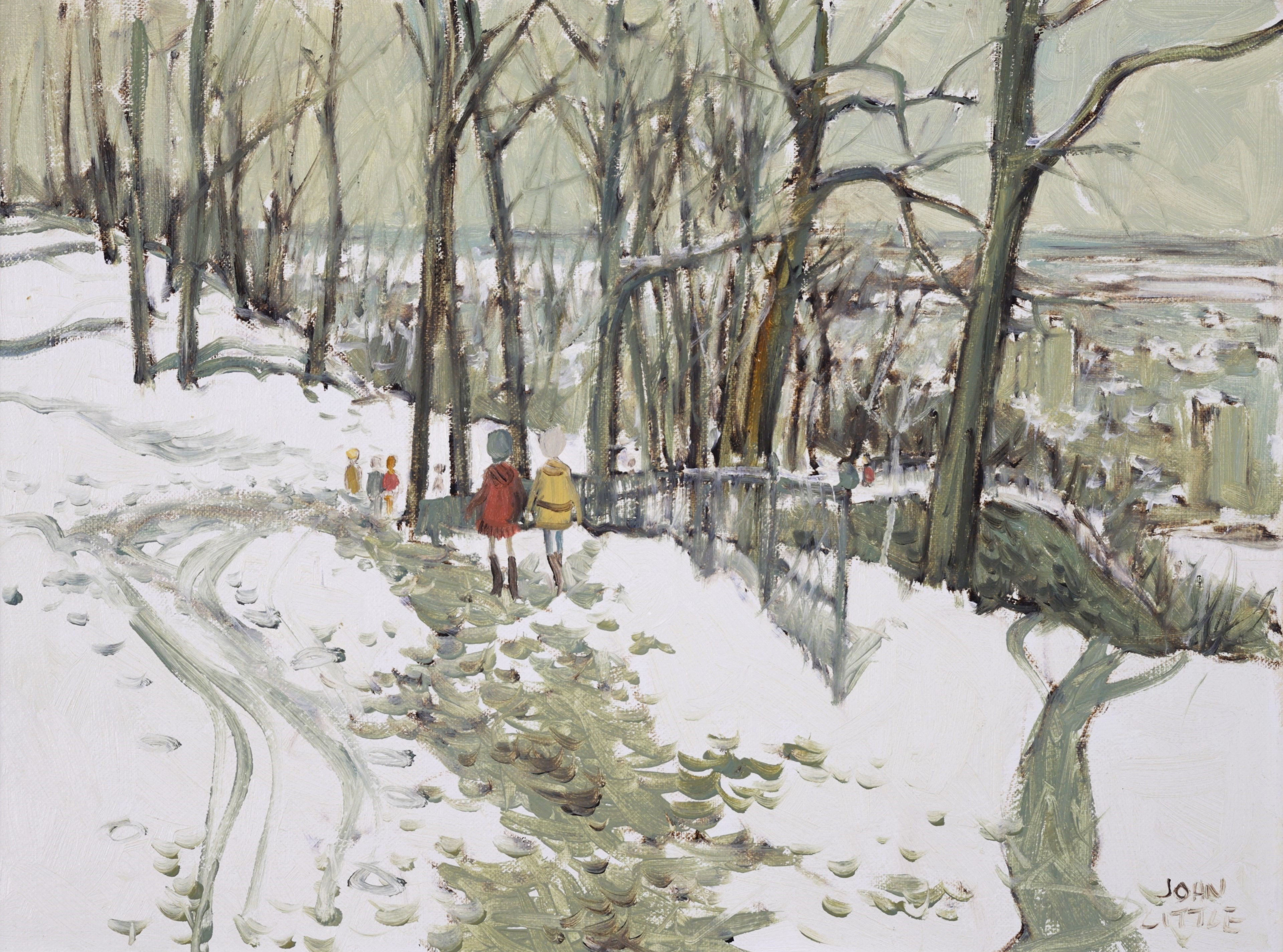“Yet so spirited and relaxed is his painting technique, [Little’s] work can in no manner today be labelled as merely documentary. He paints city streets ankle-deep in slush, where his not-quite-ripe olive green mixture carpets pavements with a mélange resembling Quebec limestone.” Little’s plein air approach to urban landscapes recalls the famous landscape painters of Quebec such as Coburn, Hammond and Fortin, in a contemporary style, in turn, making him a quintessential figure in the extensive lineage of Quebec master painters.”
Dorothy Pfeiffer, 1964
John Geoffrey Caruthers Little (February 20, 1928-October 29, 2024) was born in Montreal, Quebec. His artistic education commenced at the Art Association of Montreal, where he studied under the esteemed artists Arthur Lismer and Goodridge Roberts from 1945 to 1947. Eager to expand his horizons, he ventured to New York City in 1947, where he immersed himself in the vibrant artistic community of the Art Students' League.

John Little; Looking East on Duluth Street
Under the mentorship of renowned artists such as Will Barnet and Frank J. Reilly, Little honed his skills and broadened his artistic vision. Concurrently, he worked as an assistant to the acclaimed cartoonist Ray Bailey on the "Bruce Gentry" comic strip, gaining invaluable experience in visual storytelling.

John Little; Rue Clark en hiver, Montreal
Returning to Montreal in 1951, Little seamlessly integrated his newfound knowledge of art with his deep-rooted appreciation for architecture. Joining his father's architectural firm, Luke & Little, he gained insights into architectural design that would profoundly influence his artistic perspective. His dual passion for art and architecture manifested in his illustrations contributed to the Montreal Star, where he captured the essence of the city's dynamic urban landscape.

John Little; View From Mt. Royal, Montreal, 1966
In 1952, Little embarked on a new chapter both personally and professionally with his marriage to Lorraine, marking the beginning of a lifelong partnership that would fuel his artistic endeavors. Under the guidance of Montreal art dealer William Watson, his artistic career flourished. Little's evocative characterizations of Montreal, Quebec City, and the surrounding regions garnered widespread acclaim, capturing the hearts of audiences with his panoramic city scenes and nostalgic details rendered in oil paintings.

John Little; Return of the Birds to Baile Street, 1972
Over the decades, Little's artistic style evolved, transitioning from vibrant, bustling cityscapes in the 1950s to more nuanced, realistic depictions in the 1970s. Throughout his illustrious career spanning more than six decades, he remained dedicated to preserving elements of the past amidst the ever-changing urban landscape. His artworks served as poignant critiques of urban development while celebrating the vibrancy of urban cores, neighborhoods, and ethnic communities.

John Little; Crescent Street After Snowstorm, 1997
Little's significant contributions to Canadian art were duly recognized with his induction as an Associate of the Royal Canadian Academy of Arts in 1961, followed by full membership in 1973. His masterpieces adorn the collections of esteemed institutions such as the National Gallery of Canada, the Beaverbrook Art Gallery, and the Concordia University Collection of Art. Additionally, his work has graced the covers of publications like MacLean's Magazine, solidifying his legacy as a seminal figure in Canadian art history.







